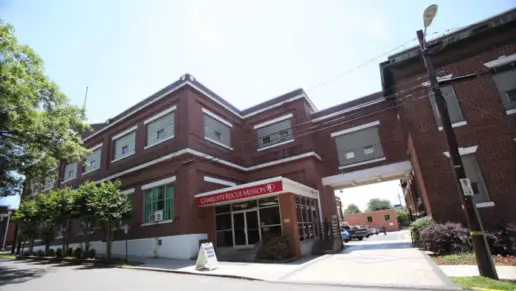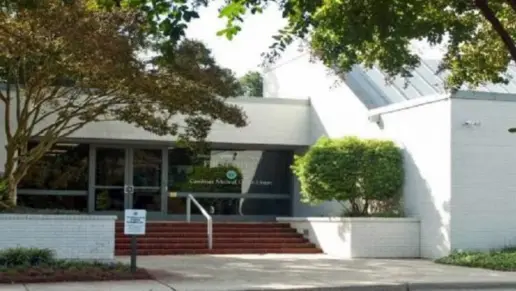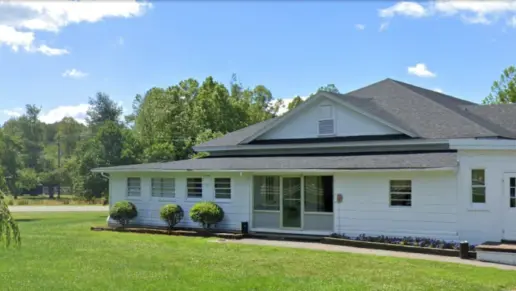About Myrover Reese – Pat Reese Home
Myrover Reese - Pat Reese Home provides transitional living services for 10 women who are in recovery from alcohol and substance abuse. Women in the treatment are required to attend 12-step meetings and follow the rules of the house. Myrover Reese - Pat Reese Home is located at Fayetteville, North Carolina.
For more than 50 years, Myrover Reese had opened their first halfway house for recovering alcoholics and abusers. They offer nature trails, gardening, woodman’s workshop, greenhouse, exercise room and laundry facilities. Additionally, they provide 24-hour supervision. Their main mission is to provide a safe and structured environment for those who want to continue their path to recovery.
During their stay, residents receive outpatient and aftercare treatment, linkage to mental health and primary care providers when needed, housing agencies and are encourage to participate in 12-step meetings (inside and outside the house).
At this time, Myrover Reese only accepts individuals age 21 and older who have a valid picture ID and who are ambulatory and physically able to participate in their program.
Individuals also must attend daily morning devotion and meditation immediately following breakfast.
Residents are expected to be looking for employment after 60 days of admission, and after 30 days the individual must have an AA or NA sponsor.
Visitors are allowed after 7 days of stay.
The residential program is tailored to the special and unique needs of women, it includes different components such as assistance with family reunification and education, 12-step meetings and referrals to other services.
Latest Reviews
Rehab Score
Other Forms of Payment
Self-pay involves paying for treatment out of your own pocket. You can use savings or credit, get a personal loan, or receive help from family and friends to fund your treatment. If you don't have insurance or your insurance plan doesn't cover a specific program, self-pay can help ensure you still get the care you need.
Financial aid can take many forms. Centers may have grants or scholarships available to clients who meet eligibility requirements. Programs that receive SAMHSA grants may have financial aid available for those who need treatment as well. Grants and scholarships can help you pai for treatment without having to repay.
Sliding scale payments are based on a client's income and family size. The goal is to make treatment affordable to everyone. By taking these factors into account, addiction recovery care providers help ensure that your treatment does not become a financial burden to you or your family, eliminating one barrier to care.
Addiction Treatments
Levels of Care
Treatments
The goal of treatment for alcoholism is abstinence. Those with poor social support, poor motivation, or psychiatric disorders tend to relapse within a few years of treatment. For these people, success is measured by longer periods of abstinence, reduced use of alcohol, better health, and improved social functioning. Recovery and Maintenance are usually based on 12 step programs and AA meetings.
There are many types of drug rehab in North Carolina. To receive treatment for addiction, you can choose from many inpatient and outpatient programs. Often, participants start with detox and work through a full continuum of care that continues with ongoing support for long-term recovery.
Opioid rehabs specialize in supporting those recovering from opioid addiction. They treat those suffering from addiction to illegal opioids like heroin, as well as prescription drugs like oxycodone. These centers typically combine both physical as well as mental and emotional support to help stop addiction. Physical support often includes medical detox and subsequent medical support (including medication), and mental support includes in-depth therapy to address the underlying causes of addiction.
Substance rehabs focus on helping individuals recover from substance abuse, including alcohol and drug addiction (both illegal and prescription drugs). They often include the opportunity to engage in both individual as well as group therapy.
Programs



Clinical Services
Research clearly demonstrates that recovery is far more successful and sustainable when loved ones like family members participate in rehab and substance abuse treatment. Genetic factors may be at play when it comes to drug and alcohol addiction, as well as mental health issues. Family dynamics often play a critical role in addiction triggers, and if properly educated, family members can be a strong source of support when it comes to rehabilitation.
Group therapy is any therapeutic work that happens in a group (not one-on-one). There are a number of different group therapy modalities, including support groups, experiential therapy, psycho-education, and more. Group therapy involves treatment as well as processing interaction between group members.
Recreational therapy (aka therapeutic recreation) uses creative and fun activities to help with addiction recovery. Recreational therapists lead patients in entertaining and engaging activities like sports or games; art (drawing, painting, sculpture); drama, music, and dance; and/or community outings (field trips) to improve patients' physical, social, and emotional well-being.
Amenities
-
Residential Setting
-
Private Setting
-
Gym
Accreditations

The Substance Abuse and Mental Health Services Administration (SAMHSA) is a branch of the U.S. Department of Health and Human Services. Established in 1992 by congress, SAMHSA's mission is to reduce the impact of substance abuse and mental illness on American's communities.
SAMHSA Listed: Yes
Contact Information
560 Wilkes Road
Fayetteville, NC 28306


